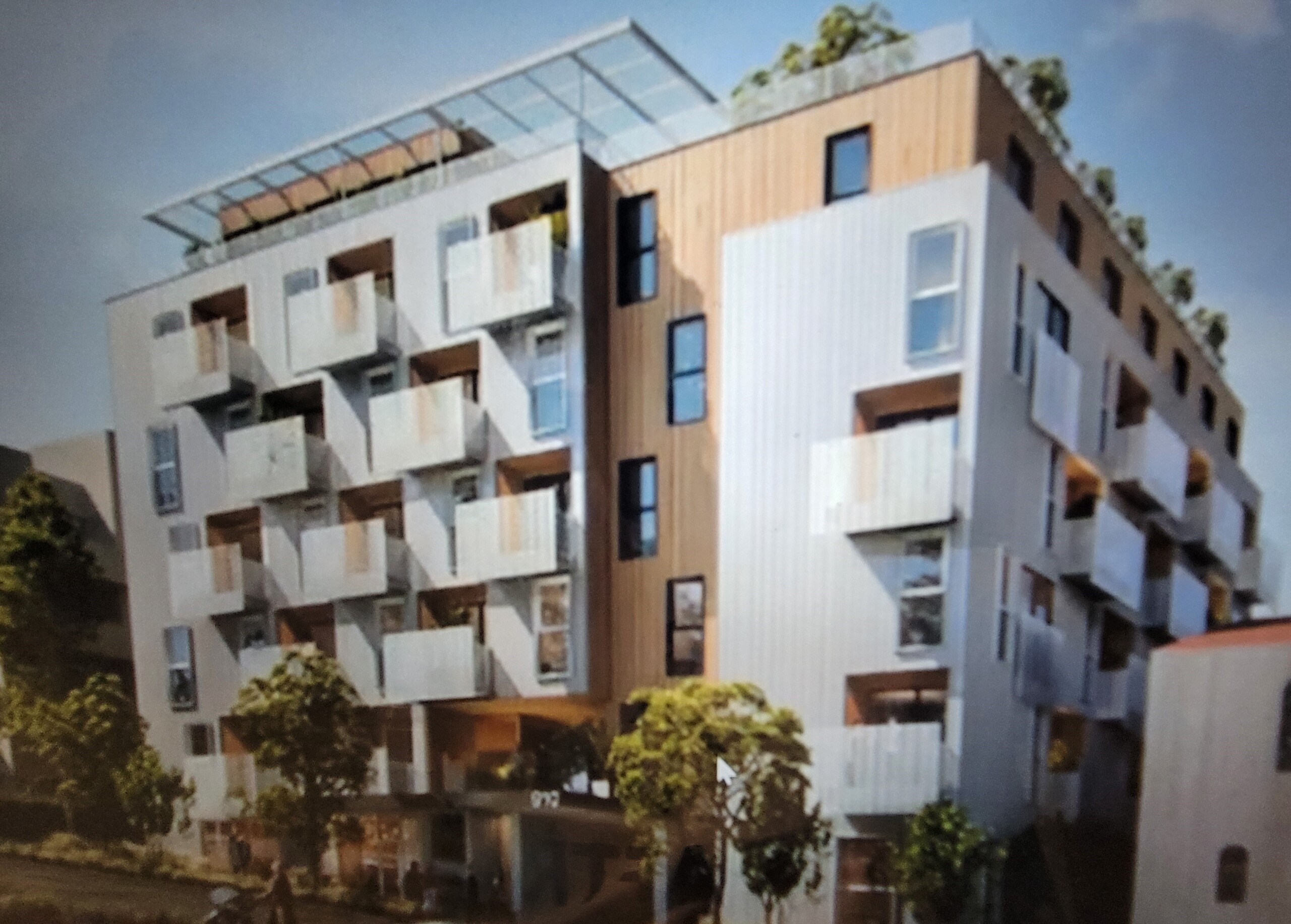Last fall, an appeal was filed opposing a Planning Commission-approved affordable housing development at 910-916 Wetherly Drive that would construct 89 new housing units at seven stories high, 100 percent of which would be designated as affordable. The appellant’s arguments charged:
- The city did not properly make records available within 10 days of the appeal
- The project doesn’t qualify for an exemption from the California Environmental Quality Act (CEQA) because it’s not actually 100 percent affordable
- The project was granted an improper, last-minute modification to a design setback
- The developer breached the loan agreement between the West Hollywood Community Housing Corporation (WHCHC) and the city due to its failure to collaborate with the Urban Design Architect Studio (UDAS)
- The height of the project impedes surrounding buildings’ ability to seek solar power
- The city failed to require an environmental impact report (EIR)
At Tuesday’s city council meeting, the city rebutted each assertion in detail, as city staff outlined in a verbal presentation to the council, which outlined explanations also provided in a staff report. For example, on the affordability charge, the building does allow a manager unit and two moderate-income units, but the 86 remaining units are all deed restricted as low or extremely low-income units, maintaining the state’s definition of a 100 percent affordable project.
Councilmember Lauren Meister had several questions about the project, including where nearby church congregants would park during construction and whether the developers have a plan for dewatering any groundwater encountered as they dig a subterranean garage. Staff didn’t seem to have answers.
She also asked why two church employees are being considered for the moderate-income units and not members of West Hollywood’s inclusionary housing waitlist. Staff did have an explanation here, which is that 100 percent affordable developments don’t use the waitlist, as the waitlist is only used when developments with an inclusionary percentage of say, 20 percent affordable units are being considered.
Mayor John Erickson inquired about the charge WHCHC broke an agreement due to an alleged lack of collaboration with UDAS. But Ric Abramson, Manager of UDAS, reassured him “There were multiple, multiple meetings” between the organizations. He added that their job is to serve as a “Rudder” for developers to steer them toward compliance with city guidelines, but collaboration doesn’t mean they have to follow every suggestion. However, he did affirm, “There were many that they followed along and integrated into the project.”
When the appellants presented their case, Martha Orellana reassured the city council that their objections were not about keeping lower-income residents out. “The fear is not about low-income housing. The fear is about the present danger of having a structure built or collapse, or actually having a hole in the ground if it doesn’t meet certain criteria,” she said, adding, “We need more low-income housing.”
Her colleague in the appeal, Arthur Bernstein, argued, “This project is not categorically exempt from CEQA because it’s not 100 percent affordable housing.” He added, “How does a developer get to decide who can jump ahead of the people waiting for affordable housing and grant someone else’s employees – that’s the church – apartments in a project simply because it’s advantageous to their purchase?”
“The need for high-quality affordable housing is greater than ever,” said WHCHC CEO Jesse Slansky, who spoke in defense of the project. Speaking to the housing costs paid by longer-term Wetherly Drive residents and those that would occupy the new building, “I don’t think the requirement to live in this neighborhood should be that you moved in 30 years ago.”
Slansky also made an important selling point – that the two units being dedicated to church employees will serve as replacement housing, as the two employees currently live in the dwellings present on the proposed project site.
Public comment attracted a lot of folks, with 47 signing up between those in-person and others calling in using Zoom. The divide favored those in favor of the new building, as did applause from the audience. But there were certainly some demographic lines being drawn. Older, longer-term residents claimed they support affordable housing, but then introduced that familiar phrasing that each came out something akin to, “But just not this project as it is now.” Younger speakers and several hotel workers, many who spoke Spanish with translation, spoke in favor of the project.
Councilmember John Heilman spoke first among councilmembers, reminding the public that the council’s amount of discretion on projects is very limited. He then went through every point in the appeal and knocked them down one by one.
Meister politely disagreed with Heilman in one regard, saying, “I believe there should have been additional, focused environmental study. She also argued there should have been a hydrology study, a shade and shadow study, and a traffic study. But added, “That doesn’t mean denying the project. What it means is being cautious about potential subsidence issues due to removing soil and dewatering that could impact a known earthquake fault. Staff didn’t even know whether there might be dewatering.”
Councilmember Sepi Shyne repeated Heilman’s assertion that the council doesn’t have a lot of discretion in shaping or approving projects. She also talked about her commitment to doing what she campaigned on, one of the tenets of her platform being to support affordable housing.
“I think there’s a really amazing thing happening in this room, where everyone is saying that we’re – yes – in support of affordable housing,” said Vice Mayor Chelsea Byers. She repeated the point about council limitations, adding, “At the end of the day, there is a very narrow piece of it that we can deal with as a council.”
Mayor John Erickson complimented everyone who came out to support either the project or the appeal and acknowledged the issue was not an easy one. “I think that everyone comes here with good intentions – that’s what I like to believe, and I believe it takes a lot of work to file an appeal on behalf of your neighbors and to try and consolidate support, figure out what you need to, and get your legal analysis and everything like that,” Erickson said.
Heilman moved for the denial of the appeal, with the caveat that people who live or work in West Hollywood receive priority for the housing. Shyne seconded, and the denial of the appeal passed 4-1, with Meister opposed.
Image obtained by screen capture.
Stay informed. Sign up for The Westside Voice Newsletter
By clicking submit, you agree to share your email address with Westside Voice. We do not sell or share your information with anyone.








